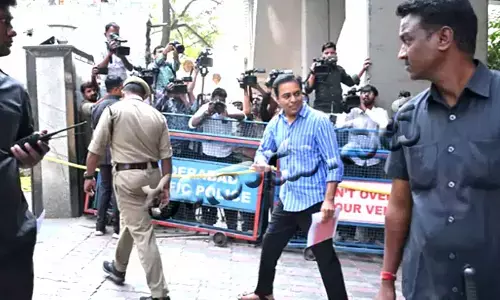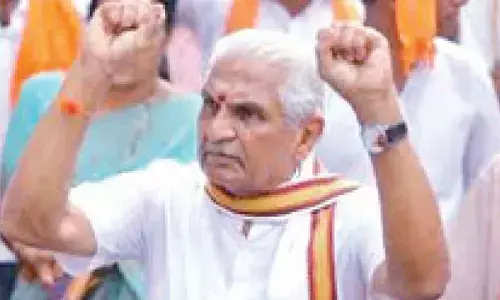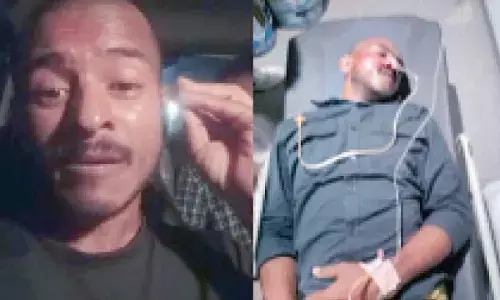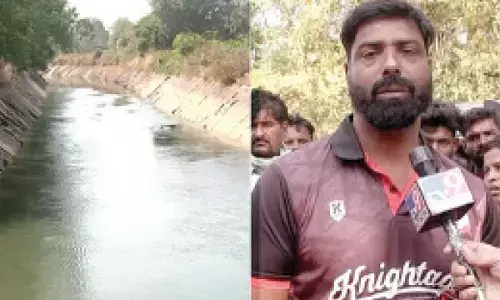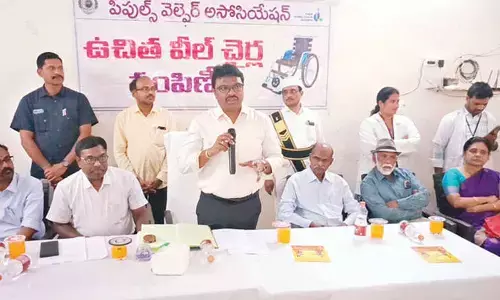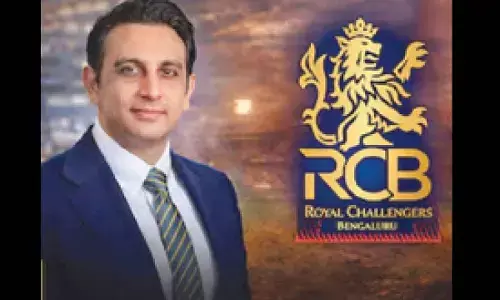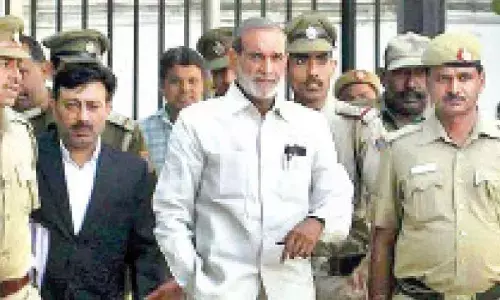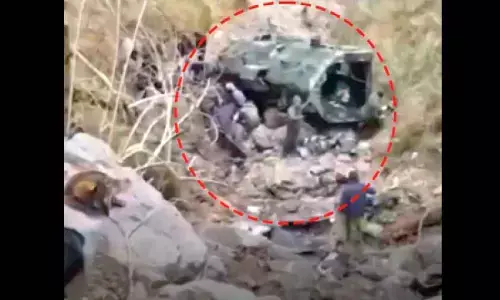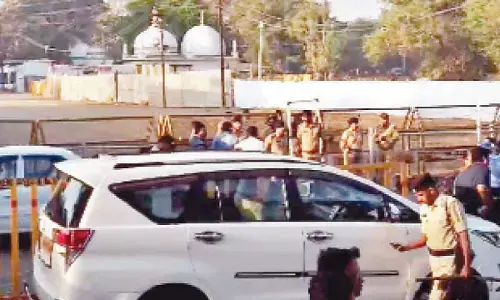Owaisi episode: Let's learn the lessons at least now !
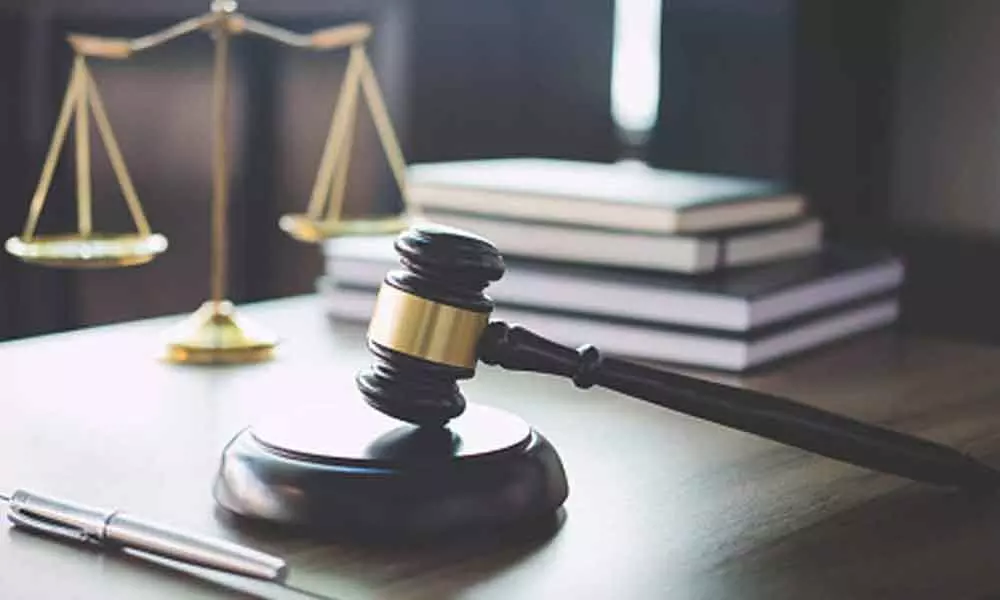
Dangerous growth of the cult of violence
On February 3, when AIMIM president Asaduddin Owaisi was on an election campaign trail in Uttar Pradesh, some youth armed with pistols attacked him
On February 3, when AIMIM president Asaduddin Owaisi was on an election campaign trail in Uttar Pradesh, some youth armed with pistols attacked him. Some bullets were fired by the assailants, which, however, missed the target. The State police, in a swift move, has already nabbed two persons and others are likely to be arrested soon.
As it generally happens after such incidents, there has been a widespread condemnation of the incident and rightly so. The law will take its course and the guilty will be put on trial. But this is only the technical or procedural aspect of the phenomenon. The moot question is: After all, what circumstances prompted the assailants to take the law into their hands and fire at Owaisi. Whether the murderous incident could be brushed aside as just an isolated incident or has its roots somewhere else, it is high time that all right-thinking people take an introspectory detour. For this, genesis could be traced in our Constitution. By our experience since Independence, now it is abundantly clear that the Constitution eulogised as the holier than cow, is nothing but an extremely elastic tool which the politicians and other vested interests use to suit their own interests.
In fact, elasticity of the Constitution is good if it is used to keep in tune with the changing hopes and aspirations of the people. This Rule Book has been amended so far over a hundred times to give concrete shape to such an accommodative spirit. However, nobody can have any right, much less the fundamental right, to claim in the names of 'democracy' and 'freedom' each and sundry privileges for himself alone.
Truly speaking, when the country was partitioned on the basis of religion in 1947, it was explicitly understood that remainder part called, India that is Bharat shall be a Hindu Rashtra. Despite over 95 per cent of the so-called minority called, Muslims had voted in favour of Pakistan and if some preferred to stay back in India, they should understand that they will have to live with the majority Hindus in a harmonious and peaceful manner. Hoping that they would do so, the makers of the Constitution did not declare in black and white that India is and shall remain the Hindu Rashtra. The leaders of free India ought to have rectified the Constitution soon after betrayal by Pakistan to protect the Hindu minority in that country even after Nehru-Liyakat Ali Khan pact in this regard. Instead, subsequently in 1976 after imposing the Emergency , the then government headed by Prime Minister Indira Gandhi amended the very Preamble of the Constitution, as if to rub salt on the wounds of the Hindus, and declared the country as 'Secular' besides 'Socialist' ! This was done after incarcerating entire opposition in prisons and in utter contempt of the Supreme Court of India which had earlier laid down the maxim that there cannot be any change in the Constitution affecting its basic structure.
This is the genesis of the problem. Of late, for a variety of reasons, misguided Owaisi brothers have been spitting venom against the Hindus and falsely claiming 'equal' rights. In fact, the solution to such a intriguing situation would have been setting right the record in the right earnest and declaring India as the Hindu Rashtra by the successive governments led by nationalist parties. But, Alas! this has not happened so far.
Strangely, the governments at the Centre as well as State level indulge in soft-peddling to the fanatic elements. The result is obvious. People will be forced to violate the laws in self-defence and in defence of their religious faith. But the nation will have to pay a heavy cost for such an anarchic situation. In order to avoid such a catastrophe, let the government and judiciary tighten noose around the fanatic, inciting elements of any religion and ensure speedy justice so as to instil a feeling of safety and security among the law-abiding gullible citizens.
Consent decree can't be modified generally: SC
On February 4, the Supreme Court in Ajanta LLP vs Casio Keisanki Kabushiki Kaisha d/b/a Casio Computer Co. Ltd, held that a consent decree cannot be modified/altered even if there was a mistake in the same unless the mistake was a patent or obvious one. The Bench comprising Justice L Nageswara Rao and Justice BR Gavai added that otherwise, there was a danger of every consent decree being sought to be altered on the ground of mistake/misunderstanding by a party to the consent decree.
No religious teaching in State-funded Madrassas
In a judgment of far-reaching consequences, the Gauhati High Court on February 4 upheld the constitutionality of the Assam Repealing Act, 2020 which repealed the Assam Madrassa Education (Provincialisation) Act, 1995 and the Assam Madrassa Education (Provincialisation of Services of Employees and Re-Organisation of Madrassa Educational Institutions) Act, 2018.
While dismissing a writ petition filed by Md Imad Uddin Barbhuiya and others, a Division Bench comprising Chief Justice Sudhanshu Dhulia and Justice Soumitra Saikia observed: "The Madrassas in question, which are 'wholly maintained out of State funds,' cannot impart religious instructions of the mandate of Article 28(1) of the Constitution of India. This judgment, therefore, would apply brakes to the dubious policy of to have the cake and eat it too, adopted by the State-funded Madrassas."
Courts to resume physical hearing from Feb 14
All subordinate courts in Telangana will continue to work in the virtual mode until February 13, thereafter, from February 14, they shall resume working in physical mode. However, the courts shall follow the SOP with regard to Covid-19 protocol while working in physical mode, said a notification issued by the Telangana High Court.








